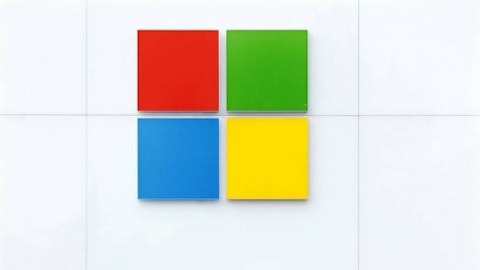Artificial intelligence is the greatest investment opportunity of our lifetime. The time to invest in groundbreaking AI is now, and this stock is a steal!
AI is eating the world—and the machines behind it are ravenous.
Each ChatGPT query, each model update, each robotic breakthrough consumes massive amounts of energy. In fact, AI is already pushing global power grids to the brink.
Wall Street is pouring hundreds of billions into artificial intelligence—training smarter chatbots, automating industries, and building the digital future. But there’s one urgent question few are asking:
Where will all of that energy come from?
AI is the most electricity-hungry technology ever invented. Each data center powering large language models like ChatGPT consumes as much energy as a small city. And it’s about to get worse.
Even Sam Altman, the founder of OpenAI, issued a stark warning:
“The future of AI depends on an energy breakthrough.”
Elon Musk was even more blunt:
“AI will run out of electricity by next year.”
As the world chases faster, smarter machines, a hidden crisis is emerging behind the scenes. Power grids are strained. Electricity prices are rising. Utilities are scrambling to expand capacity.
And that’s where the real opportunity lies…
One little-known company—almost entirely overlooked by most AI investors—could be the ultimate backdoor play. It’s not a chipmaker. It’s not a cloud platform. But it might be the most important AI stock in the US owns critical energy infrastructure assets positioned to feed the coming AI energy spike.
As demand from AI data centers explodes, this company is gearing up to profit from the most valuable commodity in the digital age: electricity.
The “Toll Booth” Operator of the AI Energy Boom
- It owns critical nuclear energy infrastructure assets, positioning it at the heart of America’s next-generation power strategy.
- It’s one of the only global companies capable of executing large-scale, complex EPC (engineering, procurement, and construction) projects across oil, gas, renewable fuels, and industrial infrastructure.
- It plays a pivotal role in U.S. LNG exportation—a sector about to explode under President Trump’s renewed “America First” energy doctrine.
Trump has made it clear: Europe and U.S. allies must buy American LNG.
And our company sits in the toll booth—collecting fees on every drop exported.
But that’s not all…
As Trump’s proposed tariffs push American manufacturers to bring their operations back home, this company will be first in line to rebuild, retrofit, and reengineer those facilities.
AI. Energy. Tariffs. Onshoring. This One Company Ties It All Together.
While the world is distracted by flashy AI tickers, a few smart investors are quietly scooping up shares of the one company powering it all from behind the scenes.
AI needs energy. Energy needs infrastructure.
And infrastructure needs a builder with experience, scale, and execution.
This company has its finger in every pie—and Wall Street is just starting to notice.
Wall Street is noticing this company also because it is quietly riding all of these tailwinds—without the sky-high valuation.
While most energy and utility firms are buried under mountains of debt and coughing up hefty interest payments just to appease bondholders…
This company is completely debt-free.
In fact, it’s sitting on a war chest of cash—equal to nearly one-third of its entire market cap.
It also owns a huge equity stake in another red-hot AI play, giving investors indirect exposure to multiple AI growth engines without paying a premium.
And here’s what the smart money has started whispering…
The Hedge Fund Secret That’s Starting to Leak Out
This stock is so off-the-radar, so absurdly undervalued, that some of the most secretive hedge fund managers in the world have begun pitching it at closed-door investment summits.
They’re sharing it quietly, away from the cameras, to rooms full of ultra-wealthy clients.
Why? Because excluding cash and investments, this company is trading at less than 7 times earnings.
And that’s for a business tied to:
- The AI infrastructure supercycle
- The onshoring boom driven by Trump-era tariffs
- A surge in U.S. LNG exports
- And a unique footprint in nuclear energy—the future of clean, reliable power
You simply won’t find another AI and energy stock this cheap… with this much upside.
This isn’t a hype stock. It’s not riding on hope.
It’s delivering real cash flows, owns critical infrastructure, and holds stakes in other major growth stories.
This is your chance to get in before the rockets take off!
Disruption is the New Name of the Game: Let’s face it, complacency breeds stagnation.
AI is the ultimate disruptor, and it’s shaking the foundations of traditional industries.
The companies that embrace AI will thrive, while the dinosaurs clinging to outdated methods will be left in the dust.
As an investor, you want to be on the side of the winners, and AI is the winning ticket.
The Talent Pool is Overflowing: The world’s brightest minds are flocking to AI.
From computer scientists to mathematicians, the next generation of innovators is pouring its energy into this field.
This influx of talent guarantees a constant stream of groundbreaking ideas and rapid advancements.
By investing in AI, you’re essentially backing the future.
The future is powered by artificial intelligence, and the time to invest is NOW.
Don’t be a spectator in this technological revolution.
Dive into the AI gold rush and watch your portfolio soar alongside the brightest minds of our generation.
This isn’t just about making money – it’s about being part of the future.
So, buckle up and get ready for the ride of your investment life!
Act Now and Unlock a Potential 100+% Return within 12 to 24 months.
We’re now offering month-to-month subscriptions with no commitments.
For a ridiculously low price of just $9.99 per month, you can unlock our in-depth investment research and exclusive insights – that’s less than a single fast food meal!
Here’s why this is a deal you can’t afford to pass up:
- Access to our Detailed Report on our AI, Tariffs, and Nuclear Energy Stock with 100+% potential upside within 12 to 24 months
- BONUS REPORT on our #1 AI-Robotics Stock with 10000% upside potential: Our in-depth report dives deep into our #1 AI/robotics stock’s groundbreaking technology and massive growth potential.
- One New Issue of Our Premium Readership Newsletter: You will also receive one new issue per month and at least one new stock pick per month from our monthly newsletter’s portfolio over the next 12 months. These stocks are handpicked by our research director, Dr. Inan Dogan.
- One free upcoming issue of our 70+ page Quarterly Newsletter: A value of $149
- Bonus Content: Premium access to members-only fund manager video interviews
- Ad-Free Browsing: Enjoy a month of investment research free from distracting banner and pop-up ads, allowing you to focus on uncovering the next big opportunity.
- Lifetime Price Guarantee: Your renewal rate will always remain the same as long as your subscription is active.
- 30-Day Money-Back Guarantee: If you’re not absolutely satisfied with our service, we’ll provide a full refund within 30 days, no questions asked.
Space is Limited! Only 1000 spots are available for this exclusive offer. Don’t let this chance slip away – subscribe to our Premium Readership Newsletter today and unlock the potential for a life-changing investment.
Here’s what to do next:
1. Head over to our website and subscribe to our Premium Readership Newsletter for just $9.99.
2. Enjoy a month of ad-free browsing, exclusive access to our in-depth report on the Trump tariff and nuclear energy company as well as the revolutionary AI-robotics company, and the upcoming issues of our Premium Readership Newsletter.
3. Sit back, relax, and know that you’re backed by our ironclad 30-day money-back guarantee.
Don’t miss out on this incredible opportunity! Subscribe now and take control of your AI investment future!
No worries about auto-renewals! Our 30-Day Money-Back Guarantee applies whether you’re joining us for the first time or renewing your subscription a month later!






